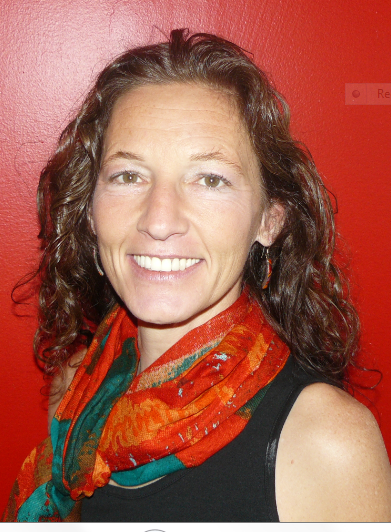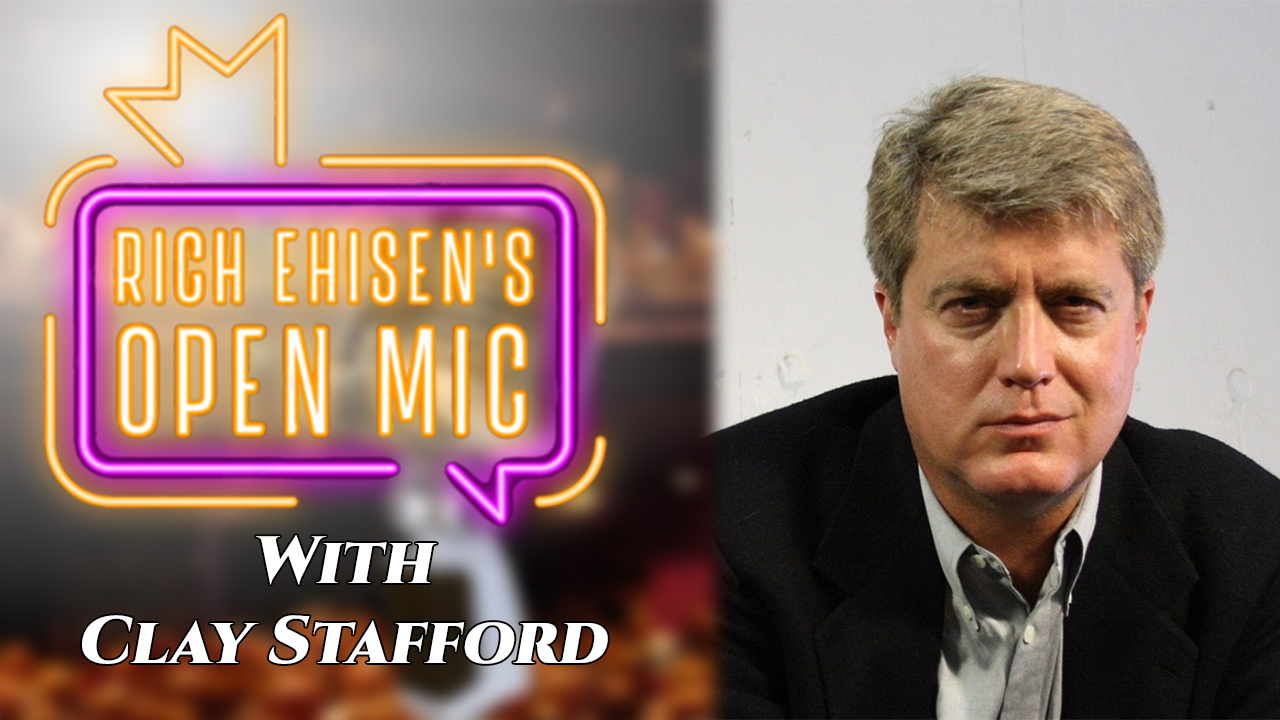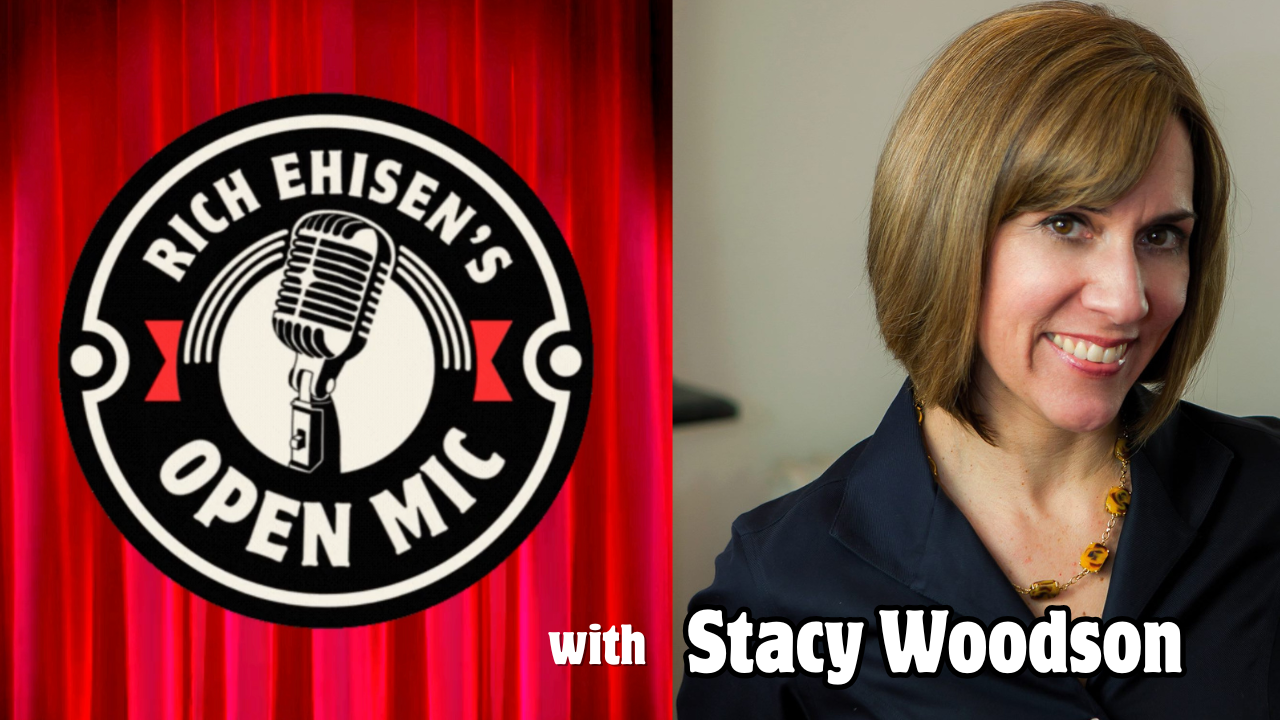
Photo courtesy of Sergio Salvador
Over the last three decades, award-winning journalist and author Hampton Sides has become one of the most respected and popular voices in narrative history and literary nonfiction. With a historian’s attention to detail and a reporter’s eye for unique stories, Sides has crafted compelling best selling works like Ghost Soldiers, Blood and Thunder, Hellhound on His Trail and In the Kingdom of Ice. I met up with him recently in Chicago, where he graciously shared a wealth of insights into his work, history and the rise of the coffee shop vampire.
Open Mic: How do you formulate your ideas? Do you have a process or is it often random?
Sides: I’ve been trying to figure out the logic in the process, if there is any logic, by which I pick my books. To the extent that I understand at all it seems to have two parts. One part is very rational and reasonable and almost like a checklist: this story seems to have all the elements – great characters, great primary material, good story arc, it ends in a satisfying way and hasn’t been written about too much by other writers. But the other side of the ledger is mysterious and irrational. It’s a hunch or a feeling. It’s almost like butterflies in your stomach or the hair standing up on the back of your neck test. And that’s a very different test. It almost makes you feel even better because you’re going to be stuck with this project for two, three or four years. Essentially it’s your project for the rest of your life since it’s always going to be a part of you. It’s just like being in love, and if you don’t feel that feeling at the beginning, how are you going to get through 50 years of marriage with this mistress, who happens to be a book? But some people unfortunately just go with that second part, the feeling, and they don’t check off the rational boxes too. Does it also have the important elements that any good story needs to have? They just go with the feeling and sometimes they regret it. So I think you need both.
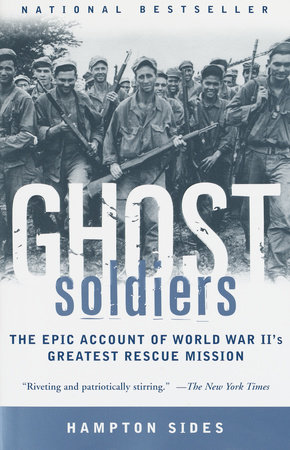 Open Mic: I loved your book “Ghost Soldiers.” There were still a lot of people from that event and time available for you to talk to. But how do you approach a story that is so far back that you can’t interview anybody?
Open Mic: I loved your book “Ghost Soldiers.” There were still a lot of people from that event and time available for you to talk to. But how do you approach a story that is so far back that you can’t interview anybody?
Sides: Ghost Soldiers was a book that I wrote that was sort of in that twilight period of history. There were still a lot of living participants who I could interview, and if I was stuck somewhere I could pick up the telephone and just call somebody and ask what something was or about some document I was reading that didn’t make sense. The story in the next book, Blood and Thunder, happened 150 years ago or more and everybody was good and dead. So it was much harder in the sense that you couldn’t just pick up the telephone. There wasn’t a lifeline, or a way to quickly and independently verify facts. Which is very lonely. You’re just stuck with these documents in a room and trying to make sense out of these things. On the other hand, it’s also easier because you don’t have to reconcile different facts from 25 different sources. It is both helpful and hurtful when all those people are alive and competing in their interpretation of an event.
Open Mic: That sounds much like the plight of a journalist.
Sides: I thought of myself almost exclusively as a journalist when I wrote Ghost Soldiers. I didn’t really view it as history. That book was based on interviews with living participants so, if anything, I viewed it as sort of oral history. But Blood and Thunder gave me such a renewed appreciation for the hard, patient and lonely work that archival historians have to do. Oh my God, you’re stuck in a room just guessing and doing your best. We’re all doing our best to try to capture the essence of an event, but when you don’t have people to interview it makes it that much harder. So you make up for it by doing other things. You travel as much as you can, you go to the physical landscapes of the story. You try to drink up the essence of it in other ways. Luckily, most of the people involved in the story that I’m writing now, which is about the Battle of Chosin Reservoir during the Korean War, are still alive. We’ve lost a lot of them, but there are still people that I can go to and meet with and pick up the phone and email and so that’s good.
Open Mic: What has been the most challenging of the books that you’ve done, physically or mentally? 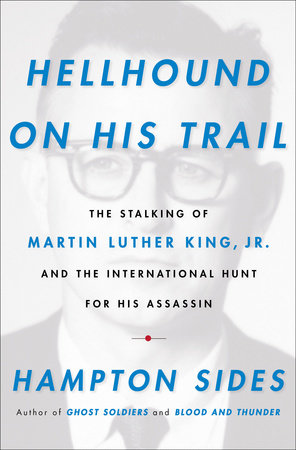
Sides: Well, it’s really hard to say, they’re all different. I guess I would say that “Hellhound On His Trail” was the hardest. With most books the problem is getting the goods, but with that story it was too much goods. There was so much material out there. A lot of it was conspiracy theory stuff, just reams and reams of books and screeds and crazy rants and monographs, and I really could not figure out how to wade through all that material and decide what was legitimate and what was crazy. It was just too much. But then I found this one source, and it was like night and day. He’s a guy in Memphis who I guess you would call a curator and collector of documents. He’s also a former Memphis police officer who was the dispatcher on duty the night Martin Luther King Jr. was killed. He put out the first bulletin about James Earl Ray. He’s been collecting and digitizing documents on the King assassination since it happened. All of this is ultimately going to be put up on a website that will be open to the public. When I found out about him I was in the rare manuscripts room at the University of Memphis, and the curator there told me, “there’s this guy named Vince you might want to talk to.” I lost the business card pretty fast. He didn’t sound very interesting. Because why would I need to talk to some guy named Vince? But I eventually did call him.
Open Mic: Okay, from one reporter to another, let’s be real – those people are usually crazy and they can waste days of your life.
Sides: I know, and I thought he was going to be crazy. And he thought maybe I was crazy at first. It was kind of a mutual audition. I met him in the back room of the Memphis Public Library and he told me at the very beginning there were multiple backups of this hard drive that are stored in vaults around Memphis in different banks in case I was going to try and knock him off. But he ultimately read some of my books and he got an understanding of who I was, and I started looking at what he had. It was just the raw goods: the police reports from that day, the police photographs taken from the Lorraine Hotel, photographs taken from the flop house across the way, the receipt from the sporting goods store where Ray bought the binoculars that he used to look out on the Lorraine, photos of the receipts for the gun that was purchased in Alabama, depositions and stuff not only from the Memphis police but from the, Scotland Yard, Interpol, from the Canadian police, from the Portuguese police, the Mexican Federales. It was the whole manhunt that led to the capture of James Earl Ray, and there it was. Okay, it was even more documents for me to read, but it was the real documents, not people spinning this way or the other. Once I found that treasure trove – I don’t want to say the book wrote itself because it was still a lot of work – but I had the real story.
Open Mic: You’re from Memphis, which is of course where Martin Luther King Jr. was killed. Was there any significance for you in choosing that story?
Sides: Oh, hugely so. It’s almost a cliché but all writers have to go back to the place where they came from, so for me this was going back to the pivotal moment of the place where I came from. King’s assassination is the most controversial and most famous and most seismic moment in Memphis’s history, so I wanted to go right back to that moment. There were some personal connections. My father worked for the law firm that represented the garbage workers when they went on strike there, and they also represented Martin Luther King Jr. when he came to Memphis. And my father’s best friend was briefly James Earl Ray’s court appointed attorney, so I got an earful from my family about this story. And it’s also the matter of wanting to test the family lore. Was it really like that?
Open Mic: Regardless of what they write, writers always at some point question if they’ve gone down the wrong road, if they’ve made a terrible mistake, if they’re the right person to write this story. How do you get yourself through the tough, the tough times in writing one of these books?
Sides: That happens all the time and I don’t trust any writers who say that has never happened to them. I think that’s a lie. You know, writers are very vulnerable and fragile, neurotic creatures and stories just have a way of not working out. Or they don’t cooperate, whether it’s fiction or nonfiction. You have to constantly work at it every day. When you have those low moments, you have to psych yourself up every day to believe in this very arrogant, vain way, that you are the guy. You’re the guy who was meant to tell this story. This is the most important story there ever was and you have to almost just grotesquely inflate the importance of the endeavor. That’s one way that I get through it. And by the end of the day I’m deflated again and back to asking myself, ‘Why am I here, what’s the purpose of life and who cares about this stupid story?’ But in the morning you’ve got to pump yourself up again and get back to ‘this is the most important story, it has to be told, it has to be told by me, and it has to be told now.’ It’s a little bit of self-brainwashing that you have to do every day during those low moments.
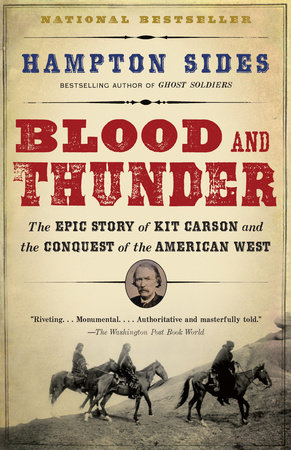 Open Mic: What are your work habits like? I know you said earlier you may have to leave home for a while to do the book because of the distractions. Do you need absolute quiet?
Open Mic: What are your work habits like? I know you said earlier you may have to leave home for a while to do the book because of the distractions. Do you need absolute quiet?
Sides: I tend to procrastinate by researching too much. But at a certain point you just have to stop and start writing. Once I start writing I tend to write really long hours, long days. I do write at home some but I have to get out of the house. I tend to write in coffee shops. I actually like noise, as long as it’s noise that I don’t have anything to do with. It reminds me there is a world out there. There are people, there are babies, old folks and sports teams, all the people that come into a coffee shop. Somehow that is comforting to me. I need music. It doesn’t even really matter what type of music. And coffee! I need a lot of caffeine and I need good Wi-Fi. I’ve been doing this since the early 90’s but now I see tons of people in coffee shops potentially doing the same thing I’m doing. They’re writers. And they’re like vampires over there. I wave at them and they wave at me but I don’t want actually to acknowledge them because vampires like to spread out. So, part of my work habit is to just work in coffee shops. Which doesn’t make any sense because I have a great office, but if I don’t get out at least once a day I feel like I haven’t worked. And I think a lot of writers actually feel that way.
Open Mic: I totally relate. I work at home and I can only have so many conversations with my dog before I need to get out and be around humans. I love the dog but at some point these imaginary conversations in my head aren’t healthy.
Sides: I have done retreats and I have done colonies and I’ve done cabins in the woods and for brief periods of times those can be very helpful and productive and great. But after about a week or two I want to chop somebody up with an axe. I want to go all Jack Nicholson just because of all the quiet and all the blank pages and staring at the screen. I need the noise. I need human contact. But it needs to be anonymous. Or at least semi-anonymous.
Open Mic: What is the biggest mistake you see people make when they’re trying to learn to be a writer?
Sides: I think it’s certainly kind of a permutation of a mistake I’ve made. I came from the South and I thought that really meant something. I was a “Southern Writer” so I had to be this certain kind of writer. It was like trying on clothes or trying on accents. I was trying to be Faulkner, or I was trying to be Robert Penn Warren because that’s the way southern writers are supposed to be. We write about these agrarian themes and family and echoes and echoes of the Civil War, when that wasn’t who I was at all. And so I would say that people have this notion about what a writer is supposed to be or what’s a good story based on what previous writers have done. So even though I think kids should read as much as they can read, they can also become enslaved by the expectations of the past. Like when a writer tries to be Hemingway by trying on all these affectations, cigars or what have you. Or saying, ‘I want to be like Hunter S. Thompson so I’m going to do every drug you can do because that’s what writers do.” I’ve actually seen that. I used to do a little teaching at a liberal arts college called Colorado College, it’s a great little school and I’ve seen a little of that. Like they’re trying on the lifestyle of being a writer as opposed to just digging in and writing and doing the hard work of figuring out who they are. It’s not based on Hemingway or Fitzgerald or Faulkner, it’s based on the twists and turns in your own life and your own journey and your own career.
Open Mic: It feels like there’s a lot of pressure now for writers to be able to assimilate to somebody else. To be able to pitch books by noting who else they are like, which is maybe why people feel pressure to be like other writers. Once it was Hemingway or Faulkner and now it’s whoever is selling big. You know, being able to pitch your book as “Girl on the Train” meets “Gone Girl.” Do you, do you see that too?
Sides: I’m in a place in my career where I kind of know who I am and what I’m trying to do. I’ve got my readership. But if I was starting out right now I’m sure I would feel those pressures that you’re talking about. They’re real. There’s fewer big books, advances have shrunk, everything is just less. There’s great stuff being written but it’s just a harder and harder world to make a living in. Magazines have folded left and right and with it has gone long form journalism, although there are some bright spots at well. But overall it feels like a shrinking island and we’re all still clinging to it because we love it. But it is so much harder to figure out how people are supposed to make a living out of that.


